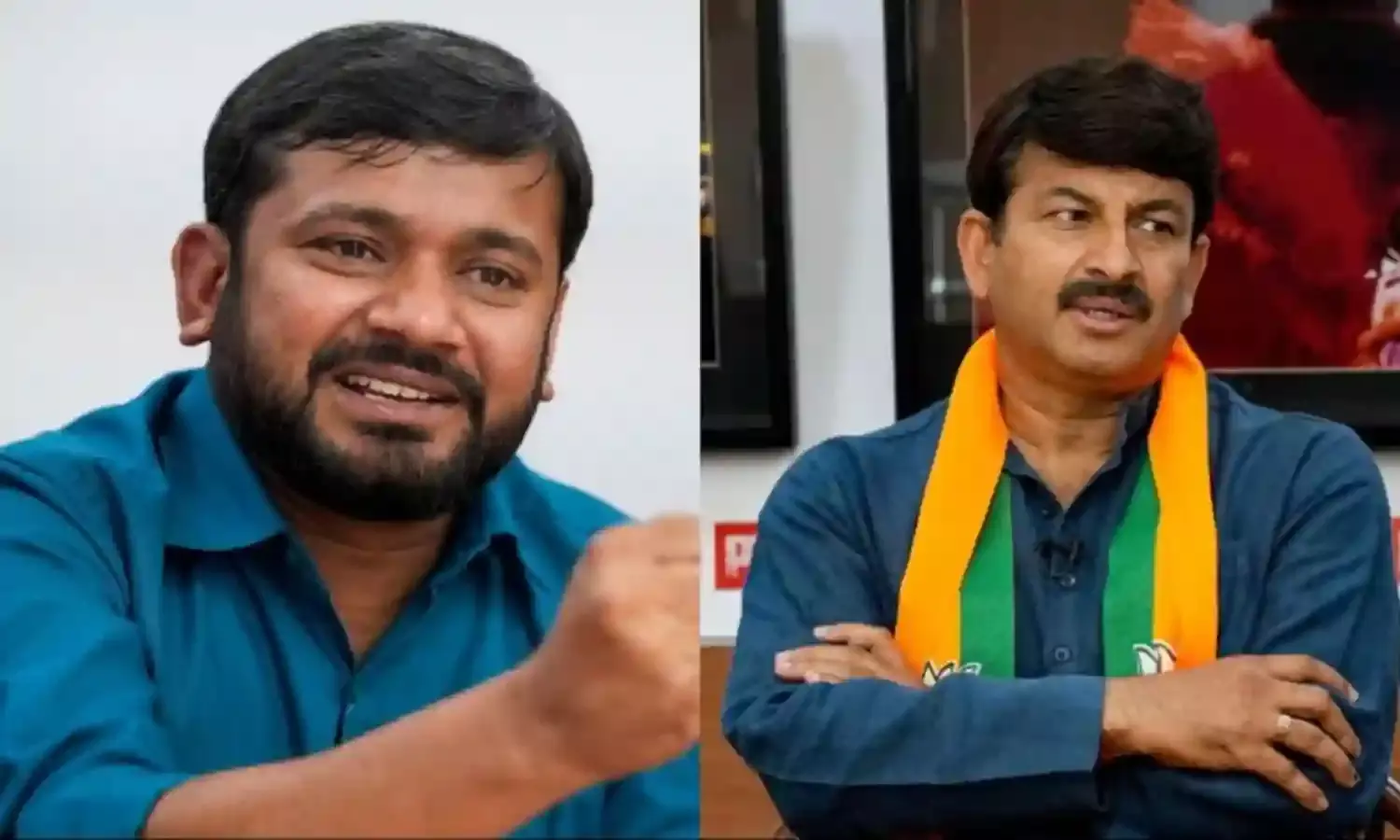North East Delhi - The Kanhaiya Vs Manoj Tiwari Campaign Has Yet To Begin
Polls 2024

Delhi has an interesting selection of candidates for the upcoming Lok Sabha elections. One of the most interesting contests is in the North East Delhi constituency. The Congress has pitted its youth leader Kanhaiya Kumar against Bharatiya Janata Party's incumbent Member of Parliament actor-singer-politician Manoj Tiwari. He is the only sitting MP repeated by the BJP in the Capital.
Kumar, 37 is contesting from the seat for the first time. The Congress is contesting three seats in Delhi under a 3:4 seat-sharing agreement with the Aam Aadmi Party (AAP).
After getting nominated, Kumar, who is currently the All-India Congress Committee (AICC) in-charge of the National Students Union of India (NSUI), said, “The decision of the Congress will give a message to the country that we are fighting the Lok Sabha elections with strength. We will continue our fight for justice.”
The former Jawaharlal Nehru University Students Union (JNUSU) president came to the limelight in 2016 following his arrest after he was accused of raising “anti-national” slogans on the university campus. He was later released after a probe proved that the slogans were raised by an outsider.
Kumar joined Congress in 2021. This will be the former JNUSU’s president's second attempt to get elected to the Lok Sabha. Kumar contested the last Lok Sabha elections from Bihar’s Begusarai, his native state, on a CPI ticket.
Since he moved to the Congress, his profile has risen. Currently, he is the head of the Congress student body, National Students’ Union of India, and a member of the Congress Working Committee. He was part of Rahul Gandhi’s Bharat Jodo Yatras.
North East Delhi is one of only three seats the Congress is contesting in the Capital, in partnership with the AAP. Kumar was reportedly picked after other leaders such as its PCC chief Arvinder Singh Lovely and former MP Sandeep Dikshit, who is the son of former Delhi CM Sheila Dikshit, were reportedly screened for the seat.
Party sources say the decision is going to work in the long term for them. They feel that Delhi, which has a major Purvanchali population is going to accept Kumar, who is educated, is a good orator and has enough experience both as an activist and a politician.
Meanwhile, Tiwari, who is representing the North East Delhi seat for a second consecutive term and is a Purvanchali himself, without naming Kanihiya Kumar asked, “how responsible could those who led a tukde-tukde gang and who cannot respect the country and its army, be?”
“Those who have come for a 40-day tour will also see the work done with ₹14,600 crore in my area. They will see how, for the first time, Metro trains, central schools, passport office, elevated roads and a bridge like the Signature bridge were developed in North East Delhi,” Tiwari said.
The North East Delhi area had witnessed intense communal violence in 2020 that took the lives of 53 people, out of which majority were Muslims. Most of the violence took place in the Mustafabad locality.
Residents here say both candidates are yet to visit them so far. “We have no choice but to wait for Kumar but he has not shown up yet. The Congress-AAP alliance was a shock and has limited us but there is no choice,” Shabnam, a resident of Mustafabad said.
The residents, most of whom are Muslims and Dalits, seem to be also torn with the AAP-Congress alliance. After the Delhi violence in 2020, the sentiments of the Muslim population in North East Delhi changed, as they believed the AAP government failed to safeguard them.
However, the same sentiment was not felt by the Dalit and OBC population. “With free electricity and water, so much relief in other aspects, AAP is a suitable party. We still don’t know how to react to the alliance, but AAP has done a lot for us,” Manoj, a resident of Karawal Nagar said.
Meanwhile, even as people wait for the poll campaigns to begin properly here, Tiwari is seen listening to the issues of people in the BJP office at Burari.
North East Delhi is one of the eleven administrative districts of Delhi and was established in 1997. The area borders the Yamuna River on its west, Ghaziabad District to its north and east, East Delhi to its south, and North Delhi across the Yamuna on the western side.
The district’s majority population includes migrants who hail from Uttar Pradesh and Bihar.



